One of the foundational principles of Parliament is that all MPs are honourable and that they should be taken at their word.
However, the word of MPs has been challenged multiple times this week in the House, and Parliament's Speaker Gerry Brownlee used a flexible approach when issue was raised about it.
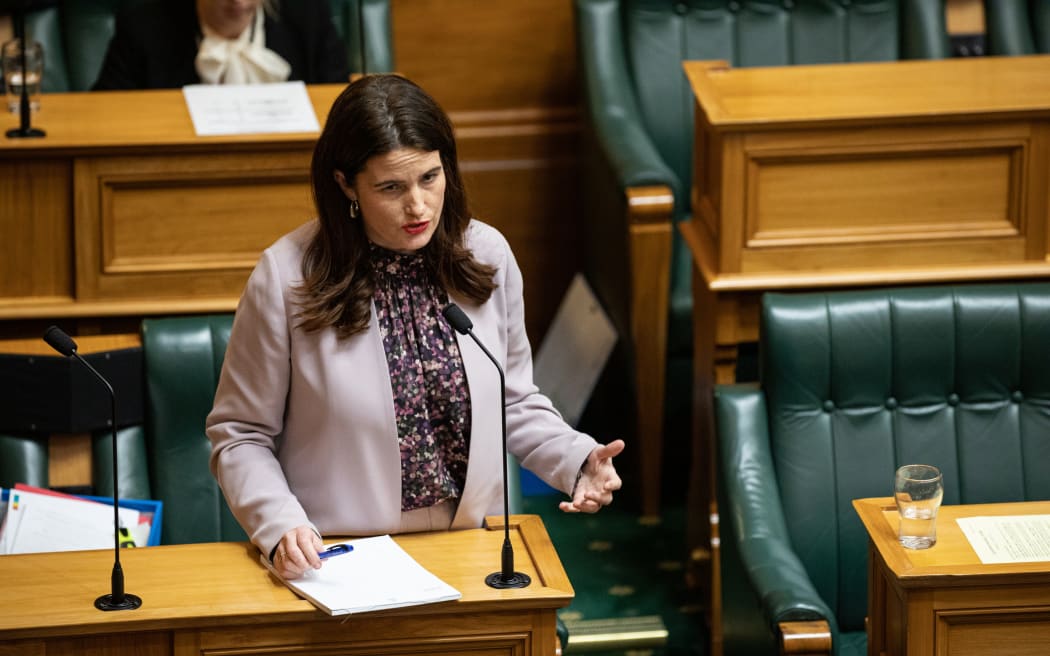
Nicola Willis in the House Photo: ©VNP / Phil Smith
During an exchange in Question Time the Opposition’s Barbara Edmonds asked Finance Minister Nicola Willis if she agreed with former prime minister John Key that “her commitment to fully fund her tax changes through Public Service cuts is too hard and risks plunging the country into discontent, as reported by the New Zealand Herald?”
In response, Willis said Key would be very unhappy that his comments were being mis-characterised.
“I would put to her that we should have honour in this House with comments that we make and how we represent others,” Willis said.
At this, Labour’s Kieran McAnulty raised a point of order, reminding the Speaker that MPs take fellow members by their word.
“Barbara Edmonds was quoting John Key. If the minister disagrees with that, she should say so. She should not be questioning the honour of members in this House in order to respond to a fair question,” McAnulty said.
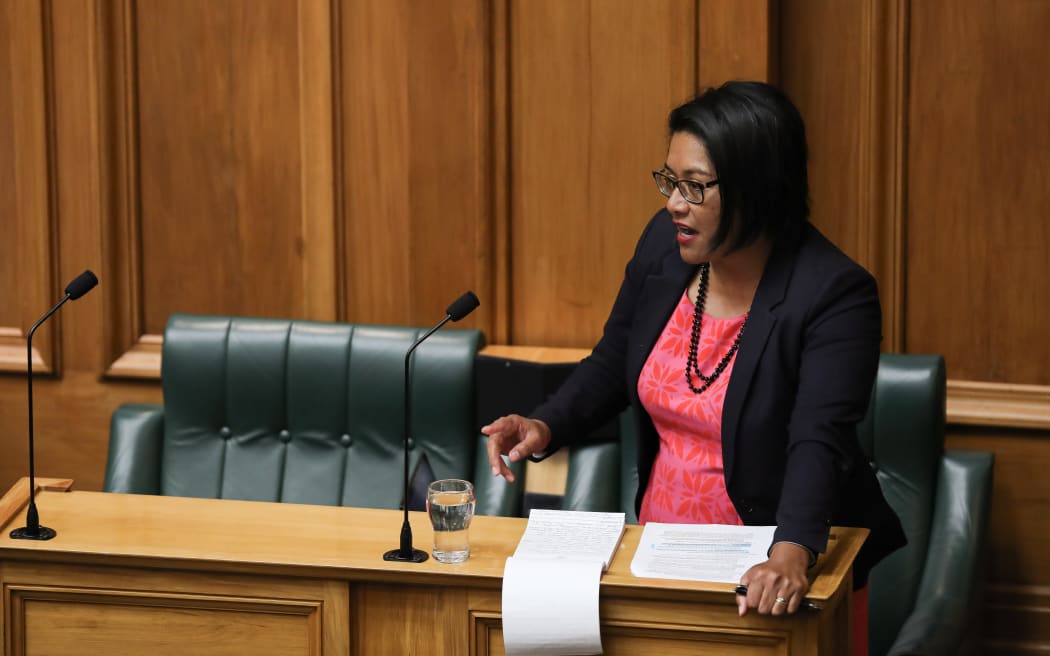
Labour MP Barbara Edmonds Photo: ©VNP / Phil Smith
It’s one thing for an MP to challenge how something is characterised by a fellow MP, but quite another to bring their honour into doubt in the process.
The Speaker agreed that all members elected to this House are considered honourable members, and that Willis’ reference was problematic, saying a “withdrawal and apology for the reference to the dishonourable nature of members would be helpful to the whole House”. Willis withdrew and apologised.
Unparliamentary language
A presiding officer can direct a member to withdraw and apologise for their comment if it’s deemed to be unparliamentary language.
Unparliamentary language can include offensive words or references to a member’s private affairs, imputations of improper motives against another MP, accusations of racism or lying.
Implying that an MP is lying is considered one of the worst offences, being an offence not just against the MP it's directed at but the whole House.
Today though, during general debate, opposition MP Duncan Webb raised a point of order when MPs on the government benches interjected, shouting that his fellow Labour MP Priyanca Radhakrishnan was “making it up”. Webb said this "must be an unparliamentary remark”. Brownlee’s response drew laughs.
“If I was to rule that unparliamentary, then there would be almost silence for many days in the House,” the Speaker said. “Interjections - can I just quote a former Speaker [that] they should be 'rare, reasonable and if at all possible humourous'. I don’t hold out much hope for any of those, so let’s carry on.”
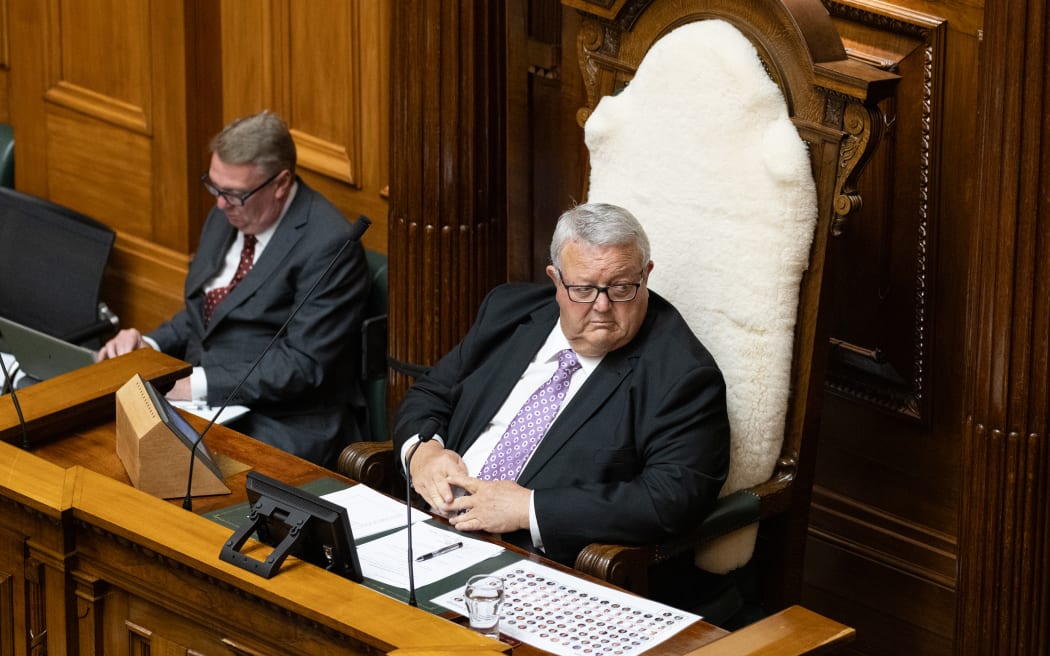
Gerry Brownlee in the Chair as Speaker. Photo: VNP / Phil Smith
Offensive comments
Earlier, during Tuesday’s debate about the Government’s response to the Gaza crisis, the notion of honour in the word of MPs was challenged again, after this response by Foreign Minister Winston Peters to an interjection by Green Party co-leader Chloe Swarbrick.
“The person was in the shop with her at a clothing outlet at the time. She wasn't the one that invoked Nazi Germany, and I did not hear that member call her out back then,” Peters said.
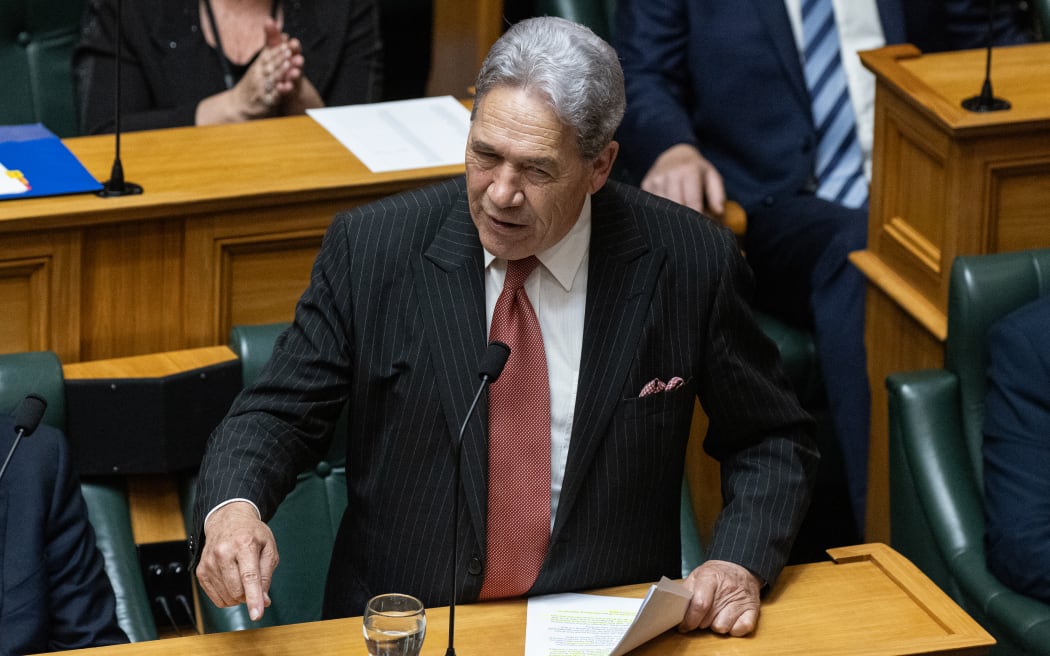
Winston Peters during the first debate of the 54th Parliament. Photo: VNP / Phil Smith
Swarbrick raised a point of order about Peters’ comment which appeared to refer to a conspiracy theory linking her to to a criminal case involving a former Green Party MP.
“The minister just now has outlined a conspiracy theory, widely circulated online, with regard to my alleged presence at allegations that are currently before the courts, and I take deep offence at that. Given that the minister knows that what he is saying is untrue, I request him to withdraw and apologise,” Swarbrick said.
There was a lot to unpack there, including acknowledgement that Standing Orders prohibit MPs from referring during debate to any matters before the court, but also the suggestion that Peters was knowingly saying something untrue, and which besmirched the honour of another member - what MPs' rules call a 'personal reflection'.
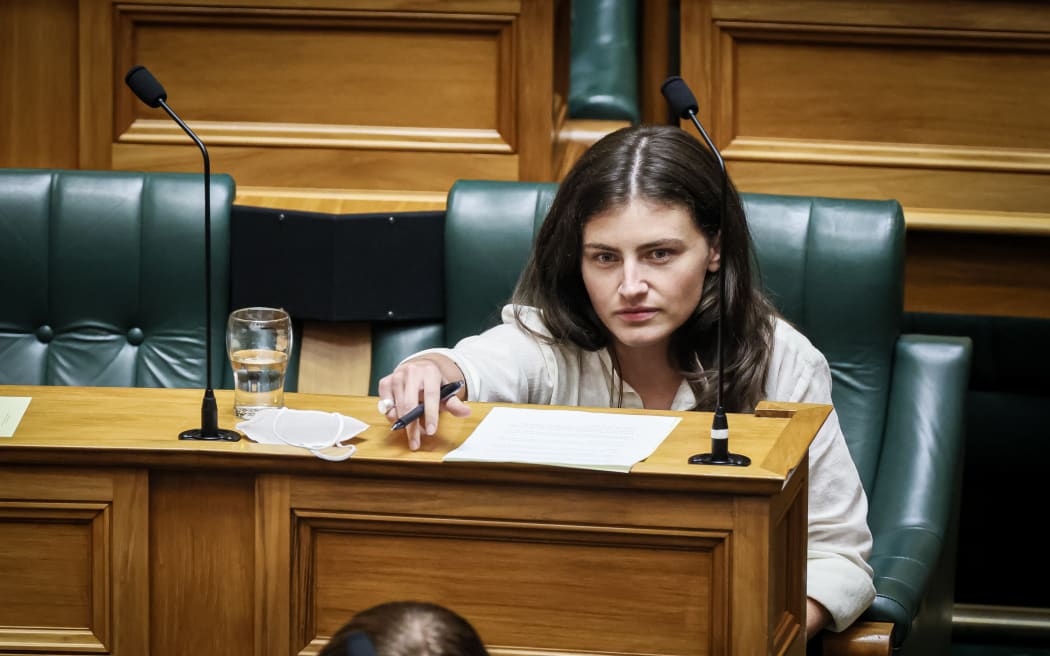
Green Party MP Chloe Swarbrick during Question Time in Parliament Photo: Phil Smith
The Speaker in this instance invited rather than directed Peters to choose whether to withdraw and apologise after Swarbrick took deep offence at his comments, but Peters did nothing of the sort.
“Yep, that's the member's response, and that's the way that it is,” Brownlee said, which rather neatly summed it up.

